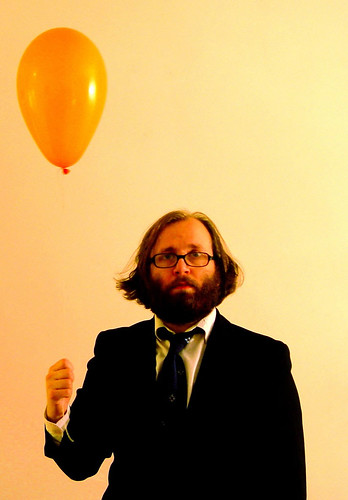
Having recently watched
2009 Unwrapped presented by the divisive Miranda Hart, I felt it was high time that I wrote something about female comedians. Firstly, I would like to draw attention to the fact that, in my humble opinion, Miranda is funny. Many may disagree with me. She is certainly not the edgiest performer to have ever lived. Her timing is not perfect (see this introduction section to
Unwrapped with the
frying pan incident, which doesn't quite work). She does, however, possess many of the qualities one would expect to find in a talented comedian. Her grasp of slapstick is impressive. Fall after fall in her self-titled sitcom left me laughing till my stomach hurt. Her
one-liners are also extremely memorable. For example, after being manhandled by a friend when she drunkenly attempts to imitate the Queen, Hart quips: "Ooh, what would Prince Phillip say?! ...Probably something racist." Last and perhaps most interestingly of all, for a female comedian she derives little to no humour from the fact that she is a woman. And that, my friend, is how a successful female comedian is born. No one wants to hear any more jokes about female hormonal ravages (take note,
Victoria Wood), men being useless (see
Jo Brand), annoying mothers (oh dear,
Ruby Wax), or a hideous mixture of all of the above (please stop,
Joan Rivers). Deeply disappointing stuff.
It is a sad fact of life that there are fewer funny women in the world than men. I know I have had debates on this subject with many people and opinions vary as to the validity of this statement but, in my experience, it is the case. This is certainly not because women are inherently less funny than men but merely because women are not expected to be as funny as men. In social situations, women are given fewer opportunities to be funny and therefore do not develop their comic talents to the full. The
feminine drought on the landscape of comedy continues ceaselessly. Whatever your opinion on this issue, I
guarantee that you will struggle to come up with suggestions when asked to name your favourite funny ladies. With this in mind, I thought I'd prepare a highly edited and by no means exhaustive list of women who make me laugh.
Julia Davis

Julia's deliciously dark sitcom
Nighty Night contains some phenomenal characters, not least the leading lady
Jill (whom Julia plays). I absolutely love that she attempted to get Colin Firth to play the role that was eventually filled by Angus
Deayton! Apparently she sent him a
rehearsal tape and never received a reply from him. Her partnership with Mark
Gatiss's character,
Glenn, is particularly inspired. One can see from their scenes together that Julia enjoys working in an environment where she is constantly on the verge of laughter. Notably, she has worked on the macabre
Jam with Chris Morris, the underrated
Human Remains with Bobby
Brydon and the short film
black whispers in an elephant sky with Rich
Fulcher. She also happens to be married to Julian Barrett with two children called Walter and Arthur, who must have the most potent comic genes in the land. I want those genes, dammit.
Rebecca Front
Wonderful
Rebecca had her most recent success as the hapless minister in Armando
Ianucci's The Thick Of It. At the other end of the spectrum, she played the deeply
unempowered Cath in the
aforementioned Nighty Night - a woman '
crippled by politeness.'
Rebecca also sparkled in Alan Partridge's
Abba Medley which combines two of my great loves (Norwich's chattiest export and Swedish pop icons).
Pauline McLynn
In her thirties, Pauline somehow managed to convince everyone that she was the elderly housekeeper of Craggy Island Parochial House. My favourite moments in
Father Ted all involved Mrs Doyle, from her
hysterical outburts to her
moralising speeches (watch from 12:45). She is a truly classic character.
Caroline Aherne
It seems to be fashionable to criticise
The Royle Family at the moment. Perhaps this is because the past two Christmas specials have been of lower quality and because Ralf Little (aka Anthony
Royle) has turned into a bit of a nob-end. Nevertheless,
Aherne's writing and acting in this and other shows are first class.
The Royle Family episode,
The Queen of Sheba, which charts Nana
Royle's terminal illness and death, is bleak and poignant but, of course, it works beautifully.
Aherne has an on-off relationship with the entertainment industry, which is perhaps why she has been sadly absent from our screens over the past few years. Her early work on
The Fast Show displays her talent for creating
believably funny characters.
Aherne's genius is summed up simply by the famous Mrs Merton line addressed to
Debbie McGee: "What first attracted you to the millionaire Paul Daniels?" Elderly people can get away with anything.
Jessica Hynes (née Stevenson)
Jessica first came to my attention as Daisy in
Spaced, which contains the only good example of on-screen
sexual tension exploited successfully for comic effect. She is especially adept at playing
pathetic characters, as exemplified by her subtle but brilliant performance as
Cheryl in
The Royle Family.
Sarah Haskins
Sarah presents the
Target Women segment
on the programme
Infomania, in which she analyses ludicrous lady-aimed advertising. Be careful. Once you pop, you just can't stop. I recommend you begin
here.
Kristen Schaal
I hesitate to use
abhorrent words such as 'quirky' or 'twee' to describe Kristen, who plays
Mel the stalker in
Flight of The Conchords. Although she is a peripheral character, she always manages to steal the show. The chemistry between herself and
Noel Fielding on
Never Mind The Buzzcocks was beyond beautiful. She also does lovely bits of
stand up.
Tina Fey
Tina went global after her impressions of
Sarah Palin on
SNL during the 2008 election campaign. More interestingly, she wrote and performed in the sitcom
30 Rock, which is chock full of marvelous misfits, and the film
Mean Girls, which captures (
someone's) high school experiences perfectly. Who cares if I relate to it or not? It's funny.
Perhaps I have just defeated my own argument...













